6. Black Swan (2010, Darren Aronofsky)
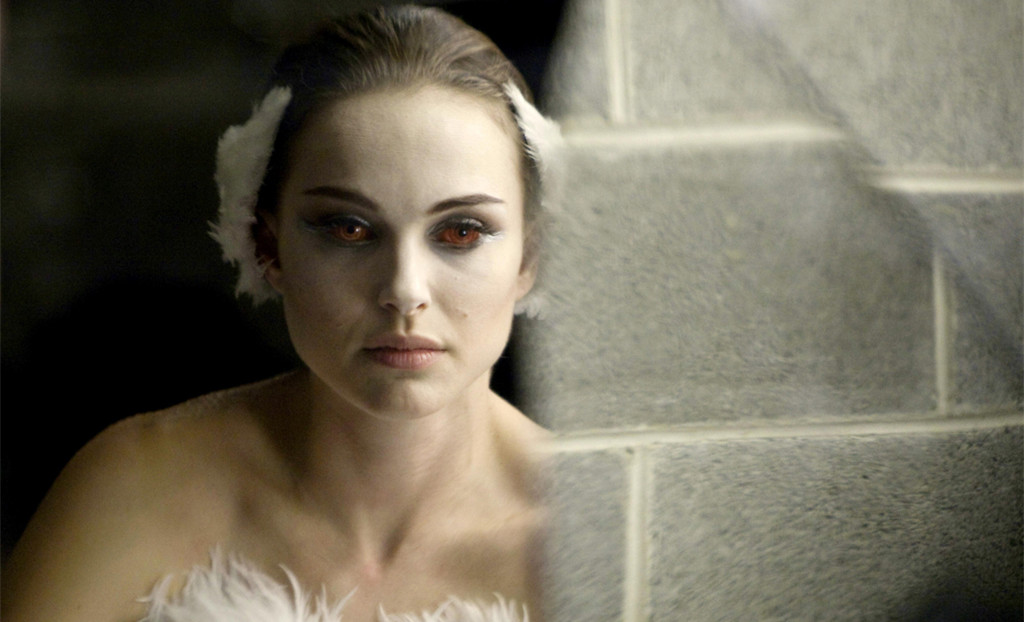
The concept of duality, fractured identities, and evil doppelgängers are all seeped well into Peele’s oeuvre, most notably his sophomore movie, ‘Us’. The director explained that he’s been terrified of the idea of doppelgängers ever since he was a kid. “I always had this vision of seeing myself across the subway platform. If that’s not creepy enough, what if he sort of smiled at you.”
It’s no wonder that Aronofsky’s psychological thriller struck a chord with Peele, given that the above scenario plays out quite literally in ‘Black Swan’. The film plunges deep into the deteriorating mind of a young ballerina (Natalie Portman), who may or may not be suffering from dissociative identity disorder and is constantly saddled with visions of an evil version of herself in the lead-up to the premiere of her new play. During the ‘Get Out’ commentary, the director noted that mirrors and glass are big motifs throughout the film, citing the 2010 Best Picture-nominee as a key touchstone in devising the visual flair of his debut.
Yes, the initial hype surrounding ‘Black Swan’ may have been overshadowed by how derivative it is, but facts are facts: it’s a masterful film through and through.
7. Cape Fear (1991, Martin Scorsese)
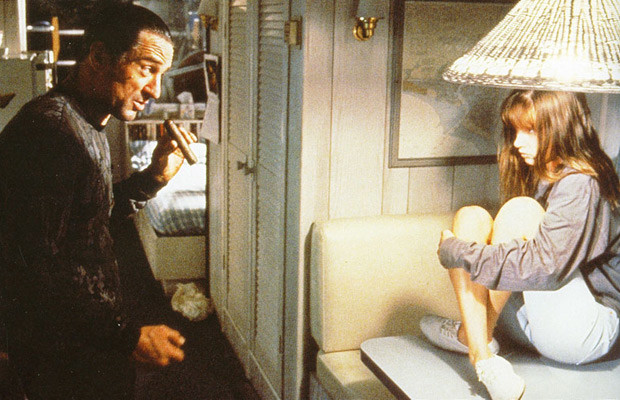
History has taught us that when you’re a film director, few blessings are greater than finding your perfect muse — one that understands your vision, shares a mutual understanding with you, and who you bring out the absolute best of each other. That has always been the case with Martin Scorsese and Robert De Niro, two Lower East Side kids who grew up a few blocks apart and spawned a sea of timeless classics under their name.
Peele hopes to have struck gold in a similar way with frequent collaborator Daniel Kaluuya, who has shepherded two of his three directorial features to date. During an interview with Empire magazine, the director opened up about his unique partnership with the actor, referencing Scorsese and De Niro as an example of sustained success and artistic chemistry. “By the time I was in the middle of shooting ‘Get Out’, I was like, ‘You’re my De Niro, man. You’re my De Niro.”
Though it hardly marks the apex of Scorsese and De Niro’s joint efforts, ‘Cape Fear’ is still an incredibly entertaining popcorn movie with enough thrills and scares to satisfy any Jordan Peele devotee.
8. Funny Games (1997, Michael Haneke)
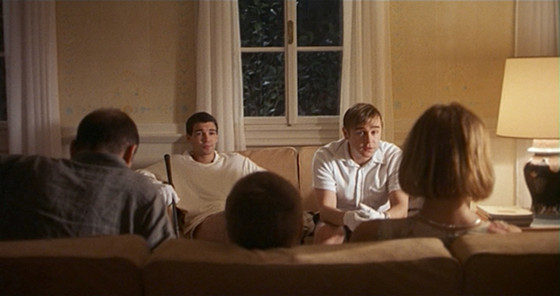
How guilty are we of the media we passively consume through our screens for our amusement? Are we, as viewers, accomplices to all the schlocky, morbid violence we pleasurably spectate from the comforts of our seats? Courtesy of certified agent provocateur Michael Haneke comes this incendiary, no-holds-barred social thriller, which among many other things, dwells on these scorching moral quandaries.
As an indictment on the potential evils of mass media consumption, ‘Funny Games’ cuts deeper with each passing year. As a disturbing home invasion movie, it’s hard not to draw lines with Jordan Peele’s own ‘Us’ — more so given the fact that the director had the cast watch it before shooting the film. Beyond their similar story beats and graphic violence, dig a little deeper, and you’ll find a few witty callbacks from Peele to Haneke’s gnarly classic. Take for example the way the evil doppelgängers force the Wilson family to sit on the couch while they watch menacingly; or Zora’s unusual weapon of choice — a golf club of all things — both mirroring the villains unceremonious M.O. in the 1997 movie.
Earning a place on Peele’s 2017 curated film series, ‘Funny Games’ will provide plenty of food for thought providing you have the stomach for it.
9. Cronos (1993, Guillermo del Toro)
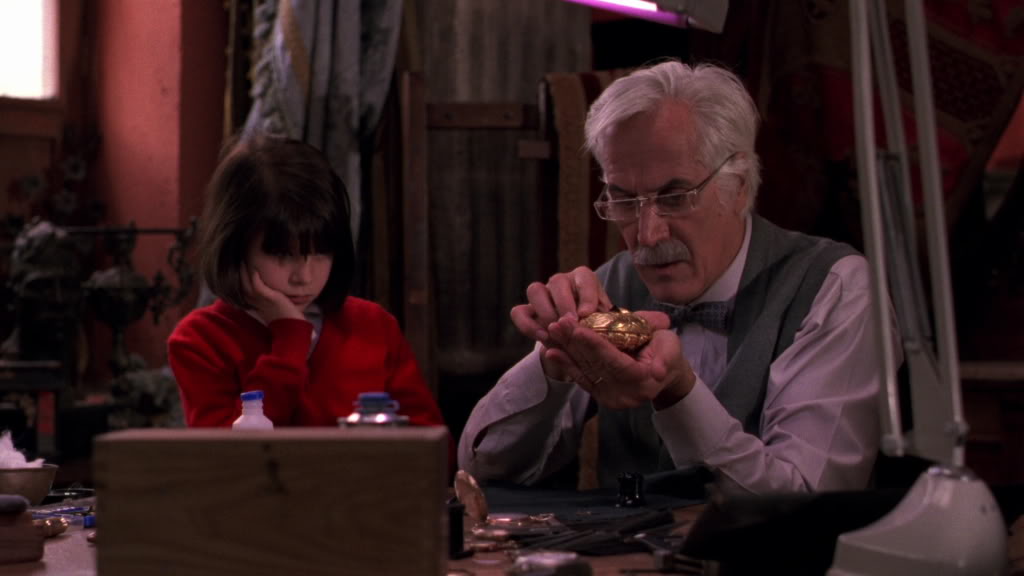
There’s nothing quite as wholesome as watching one silver screen legend tipping his hat to another. Despite being slightly edged out by Guillermo del Toro for Best Director in the 2018 Academy Awards ceremony, Jordan Peele had nothing but praise for his Oscar adversary in a beautiful essay he wrote to celebrate the Mexican being named one of TIME’s 100 most influential people in the world.
“Guillermo del Toro’s potion intoxicates. His brand of alchemy includes a pinch of macabre, a dash of melancholy and a few handfuls of stunning horror, but then he adds that perfect dollop of whimsy that keeps his audience gripped to the screen,” the ‘Get Out’ director wrote. “To watch one of his masterpieces is an experience in escapism and wonder. We look up to him because he doesn’t compromise in his mission to burrow down into the craggy pit of love and fear and invite us down there with him.”
Del Toro accepted this lofty praise, claiming Peele’s words “move and humble me in equal measure”. It’s safe to say the bromance goes both ways, with del Toro tweeting out “Long live Jordan Peele !!” shortly after ‘Us’ premiered in 2019.
10. Rear Window (1954, Alfred Hitchcock)
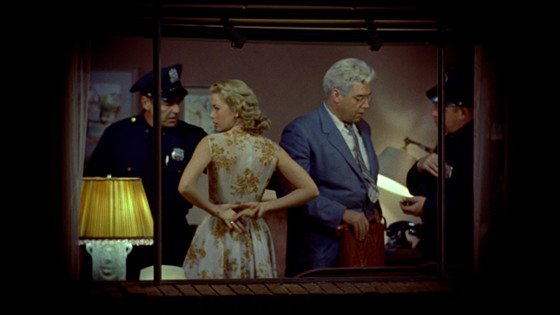
One of the core underpinnings in ‘Nope’, Peele’s third and latest directorial feature, is how we’re collectively drawn to spectacle, no matter how macabre, and the many ways the entertainment business has repeatedly tried and will continue to exploit our inherent voyeurism. By the same token, ’Rear Window’ is a film that casts an unwavering eye on the audiences’ morbid curiosity, inviting us to watch a potential murder unfold all while we’re stuck from one single vantage point the entire way.
Peele, who included the film in his curated film series for the Brooklyn Academy of Music, argues that the 1954 thriller captures the magnetism of voyeurism, packaging it in a way we’re deciphering a crime on the just side of the lead character (Jimmy Stewart). “Hitchcock knew his audience very well, he knew they were coming to his movies as voyeurs”, suggested the director during an interview for Rotten Tomatoes. “There’s a sick, twisted guilty little pleasure as human beings have by watching something we’re not supposed to be watching. ‘Rear Window’ really just tapped into the voyeur in all of us”.